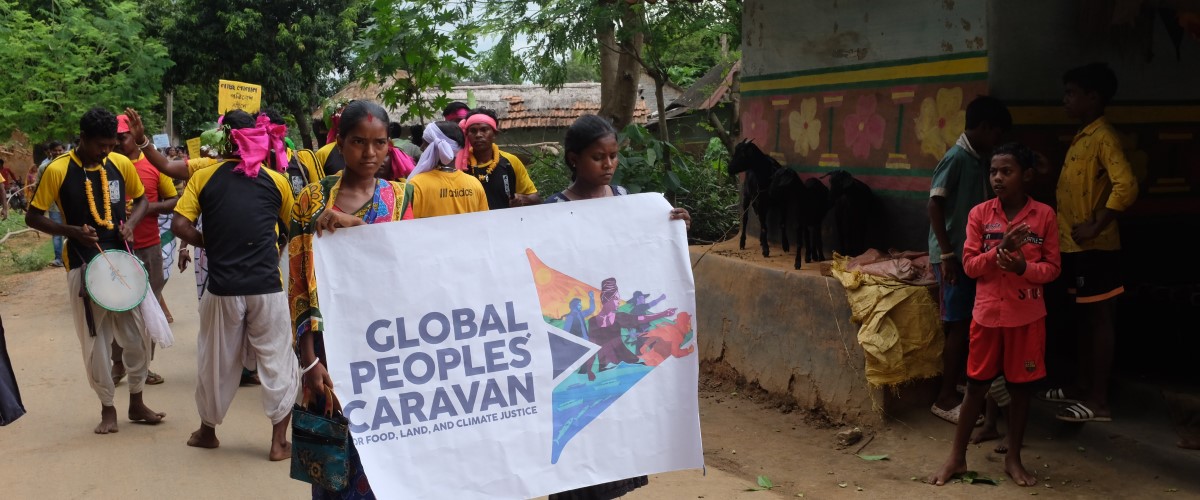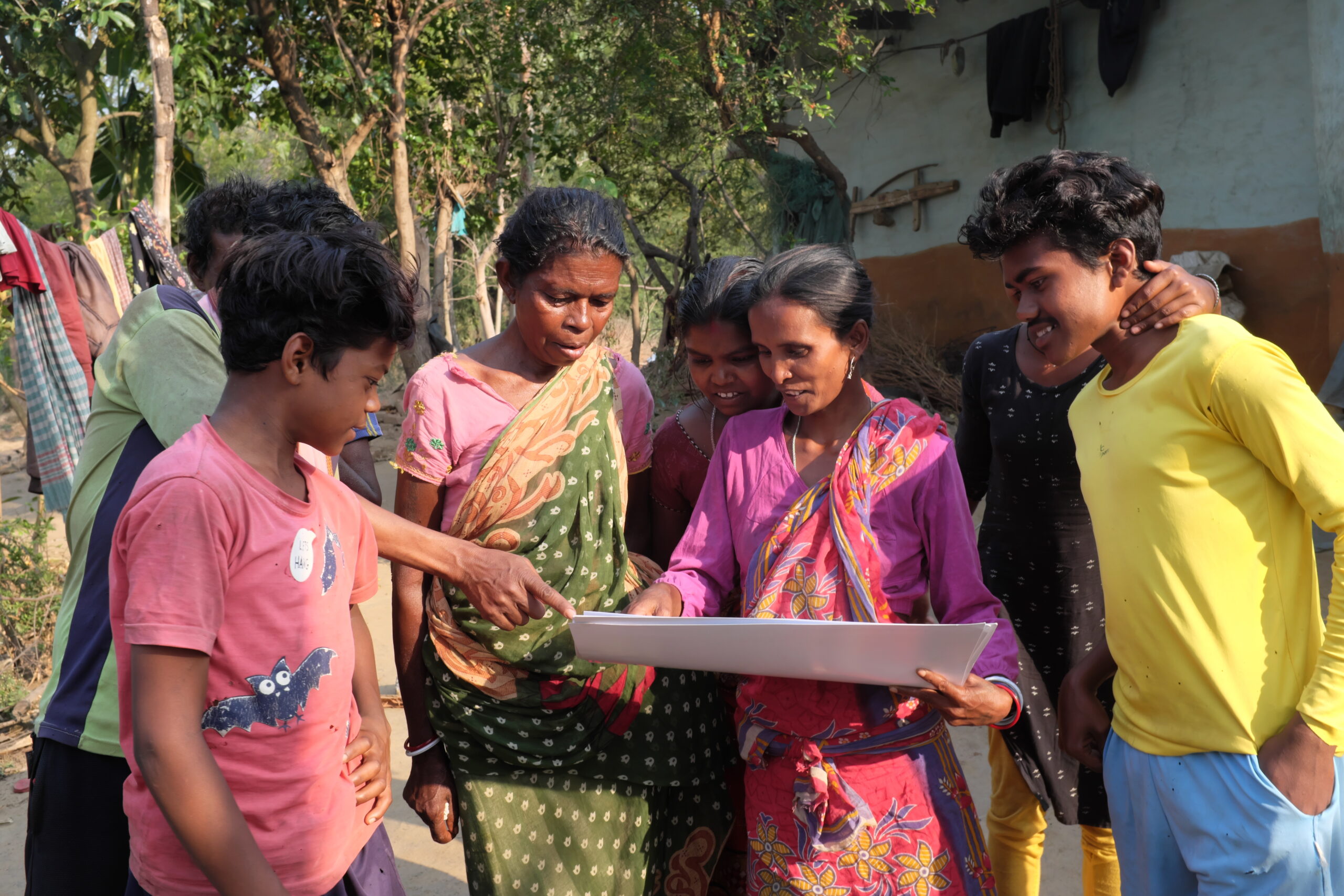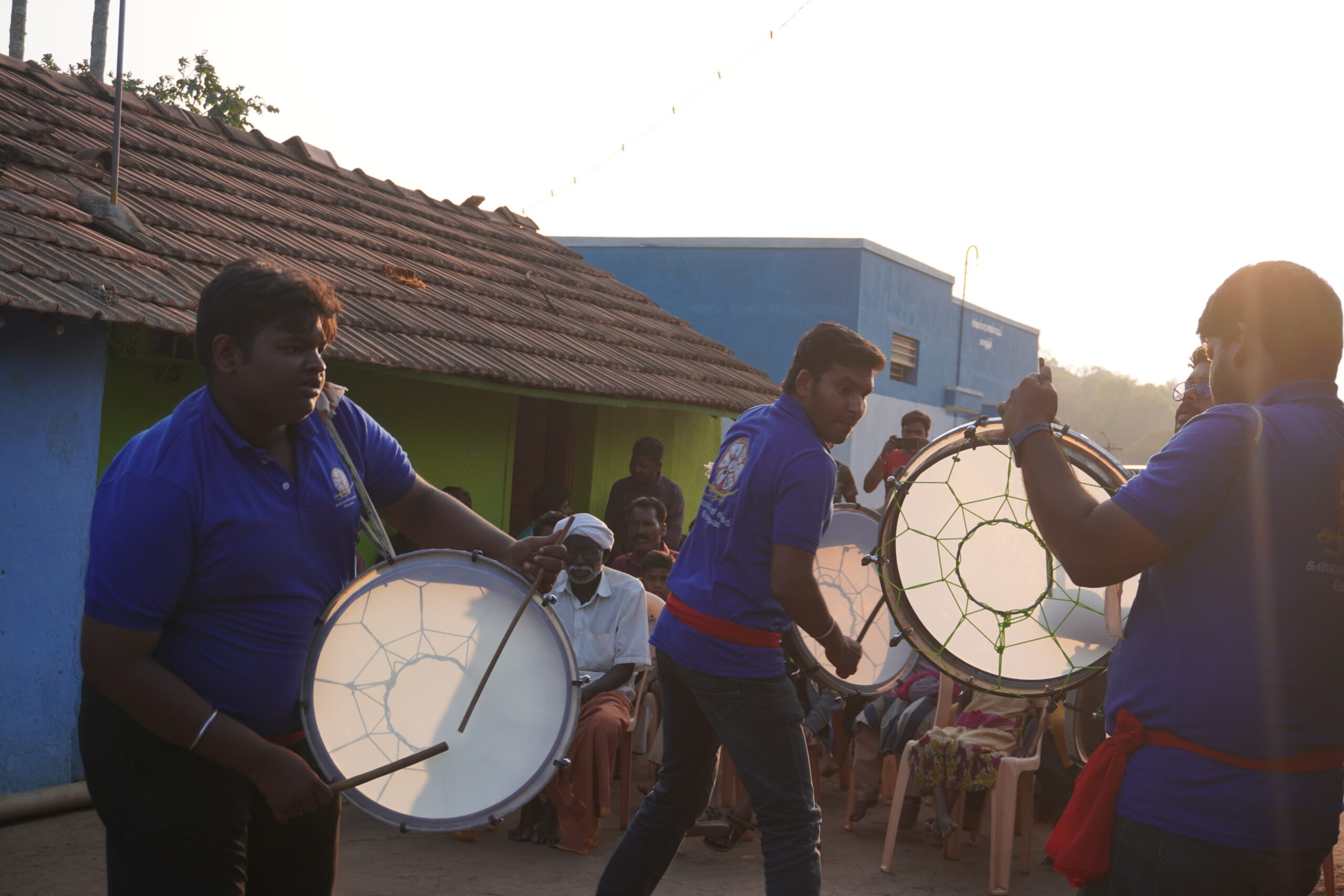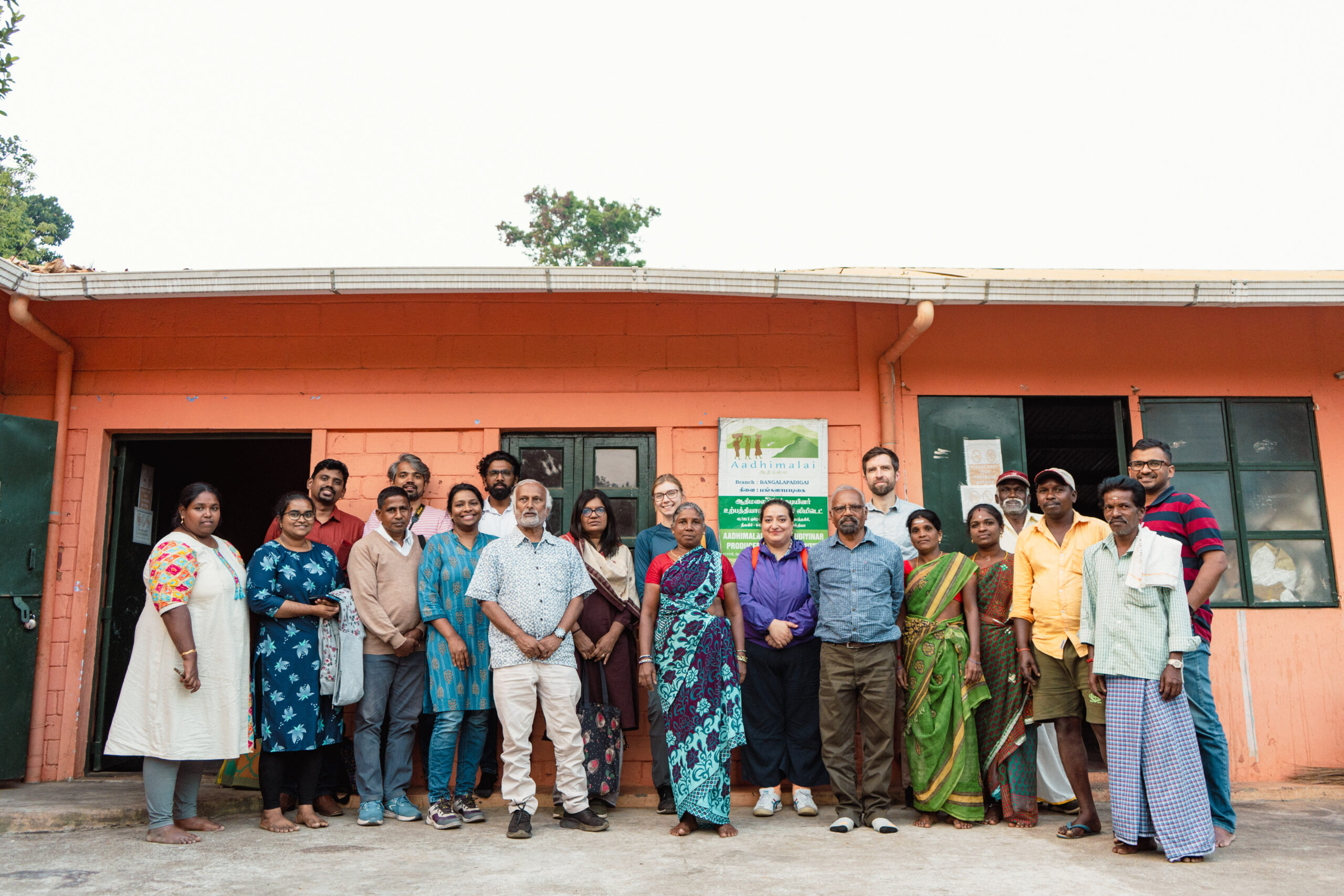July 20, 2023
By Rohan Mukerjee
Programme Coordinator – Networks & Alliances
Today, Paschim Banga Kheria Sabar Kalayan Samiti (PBKSKS) and Keystone Foundation organized a community consultation with the Kheria Sabar community in Boro Sabar Para in Purulia district of West Bengal. The consultation focused on the land tenure issues of the community, wild and uncultivated foods and their declining availability, traditional crops, agriculture and organic practices, impacts of the shift to modern chemical-based farming and observed impacts of climate change on food systems especially increased incidence of droughts, erratic rainfall patterns and heat waves.


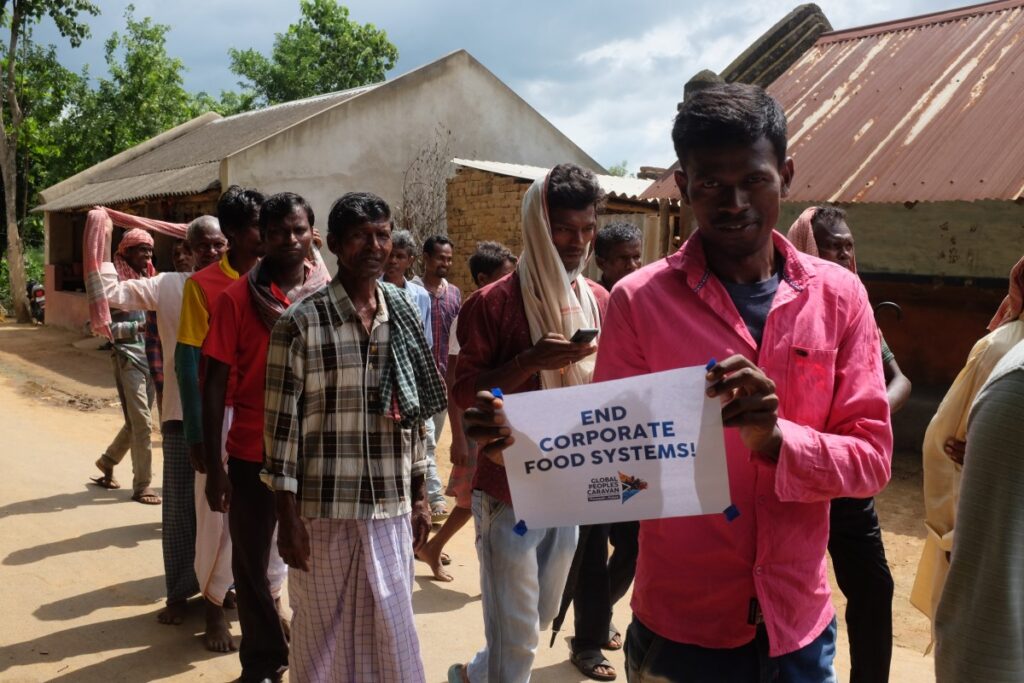
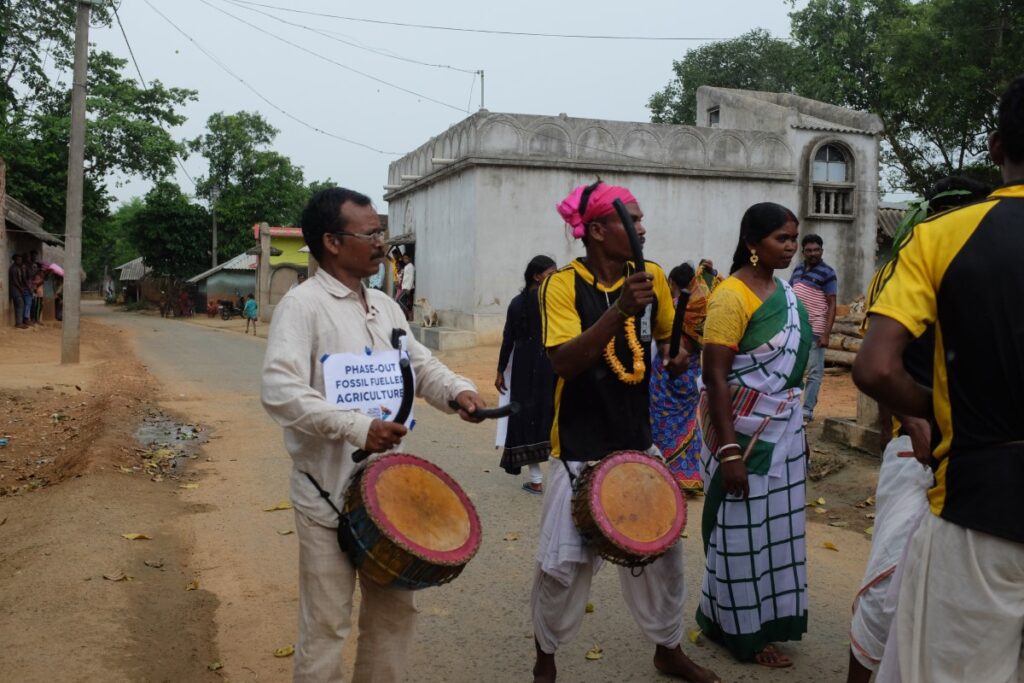
This event was part of the Global Peoples’ Caravan (f’or Food, Land and Climate Justice), a global rural peoples’ movement for advocacy on traditional and sustainable agricultural practices. This movement is organised by Pesticide Action Network Asia Pacific.
The speakers at the event included –
- Argha Chatterjee ADA (Assistant Director of Agriculture, Manbazar Development Block II) stressed on the long-term negative impacts of chemical fertilisers and pesticides on soil, environment, water, biodiversity and human health. He compared this with the positives of organic inputs and also provided examples of organic farming practices and approaches. He shared that he is already working with a large number of farmers for organic farming on their lands and promised to extend support to more Sabar farmers.
- Jaladhar Sabar (Secretary, PBKSKS) spoke about the traditional food system and foods of the Sabar people as well as the erosion of these systems and the shift to hybrid seeds and chemical agriculture. He emphasised the grave threat posed by chemical fertilisers to soil health in the limited lands owned by the Sabar people and urged them to gradually return to organic inputs.
- Amitesh Chatterjee (Joint BDO, Manbazar Development Block) addressed issues faced by Sabar community members in getting identification cards which will enable them to access schemes available to Scheduled Tribes (ST) as well as processes to resolve issues of land tenure.
- Dilip Banerjee (veteran social worker and advisor to PBKSKS) engaged the audience in a holistic discussion of the environment and its multiple components, anthropogenic pressures on the environment, and the role we can play to protect, conserve and safeguard our natural resources.
- Samir Dutta (ABP journalist and well wisher of PBKSKS) highlighted the empowerment of the Sabar community over the years and how they are now increasingly raising their voices for their rights but also emphasized that the journey is not complete and they need to build on this to continue the struggle for their land rights, forest rights, and justice.
- Meghnad Sabar (Administrator of PBKSKS) stressed the grave land tenure related issues the Sabar people continue to face. He acknowledged the importance of adopting organic farming practices, while emphasising the priority of first securing land rights. He said that in 2019, over 500 Individual Forest Rights (IFR) claims were filed but four years later, these are yet to be processed.
- Ratnabali Sabar (President of PBKSKS) pledged that the Sabar people would come together to adopt the organic and ecological farming approaches and process being demonstrated and promoted by the Samiti.
- Prasanta Rakhit (Director of PBKSKS) expressed pride that the Sabar themselves were taking on the responsibility of organizing such events and campaigns. He highlighted the challenges the Sabar continue to face with respect to land tenure and forest rights and the challenges posed by climate change especially to agriculture practices. He praised the efforts of Sabar farmers to adopt organic cultivation of climate resilient vegetable crops.
The event was chaired by Community Fellow Sapan Sabar. A number of participants raised questions on various issues like mutation of land title, land and forest rights, identity cards, village approach road and land for planting trees.
The event ended with all traditional songs and dances and a rally raising slogans for environmental protection, land rights, rights to healthy, nutritious food and climate justice.

